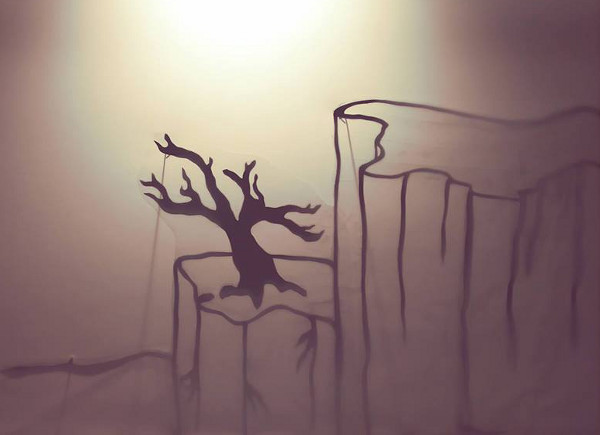By Philippa Kiraly, Special to The Sybaritic Singer
Schubert composed his dark song cycle Die Winterreise the year before he died and was correcting galley proofs on his death bed. He was 31, young to be dying. He had syphilis, and he must have known his condition was irreversible when he chose to set Wilhelm Mueller’s group of poems, ones of unremitting sadness and despair.
The music is beautiful. It is quite spare, but surrounds the words with emotions and colors them, making the experience of hearing it indelible, yet we very rarely hear it live. The 24 songs describe, on the surface, a lover’s rejection by his girl and her mother, her marriage to a rich man, and his consequent wandering in a wilderness of the soul, painted as in a wintry landscape. But it was written at a time of severe political repression and it may also be an allegory of how those repressed felt, seeing no end.
Winterreise takes around 75 minutes to perform, and few concert presenters will program a work that long that is solely for voice and piano. It is also a tour de force for the baritone who has to sing for that long, all the attention on his interpretation. This is the second year we have had a chance to hear it complete in Seattle, done in a fashion which riveted the attention.
Art historian, singer, writer, artist, inventor and puppet designer Juliana Brandon, sole staff and inspiration of Paper Puppet Opera, created around 270 shadow puppets to illustrate the songs and presented the entire cycle again at Trinity Parish Hall last weekend (March 15 & 17, 2019), using the same baritone and pianist as last year. She intends to try to make it an annual event. She brings to life with her puppets the words of the songs, from fences and footsteps, hearts and tears, dogs, deer, squirrels and various birds, houses, church and tombstones, cliffs, trees, leaves and stones, roads and rivers, even the hurdy-gurdy man of the final song, but never the protagonist. Perhaps most telling are the red (hot) tears which trickle down the screen, each with the silhouette of the girl inside them.
The puppets and scenery are projected as shadows from behind by the three puppeteers (Monica Barroga, Daniel Maret and Annie Yeargers) who help her, but Brandon has added flashes of color here and there, a green leaf, a bright butterfly, a purple will-o-the-wisp. The words in English are projected immediately above the puppet screen, large enough to see, not large enough to be obtrusive.
Baritone David Hoffman, a cantor and soloist in the St. James Cathedral Choir, has a voice admirably suited to Schubert’s music. Listening to one of the most celebrated recordings of Winterreise, that with baritone Dietrich Fischer-Diskau, it’s noticeable that Hoffman has a similar timbral quality to his voice. Hoffman’s has warmth and depth, plus rock-solid pitch sense. He was able to encompass the wide vocal range the songs required with no undue effort and with the stamina which enabled him to have the same strength and resonance in the last song as in the first. The expressiveness was there, at times desolate, anguished, despairing, longing, exhausted yet unable to achieve mental rest, a sense of being utterly alone and even wishing to be alone and, every now and again, a glimmer of hope, all too soon extinguished.
Pianist Peter Nelson-King is better known in the Seattle area for his championing of adventurous contemporary works which are well outside the box. Although he performed this work with Hoffman last year, and has clearly spent more time with it since, it still seems as though he is coming to Winterreise from the outside rather than with an internal appreciation. It didn’t help that the Trinity Parish Hall piano is not a particularly good instrument, but he could have used more nuance, a lighter touch especially in staccato moments and less pedal in his interpretation and partnership with Hoffman, though their rhythm and tempos were closely together throughout.
That said, the whole was a performance which held the interest from start to finish. There is so much to this profound work that to hear it again next year and after, is something to look forward to.
 Philippa Kiraly has writing classical music criticism since 1980, for several newspapers in northern Ohio and Seattle, magazines, both local and national, and blogs. She is passionate about the importance of independent criticism for the fine arts, an art in itself which is dying with little interest by many publications and no longer a viable career for most. But writing for tickets is always worthwhile!
Philippa Kiraly has writing classical music criticism since 1980, for several newspapers in northern Ohio and Seattle, magazines, both local and national, and blogs. She is passionate about the importance of independent criticism for the fine arts, an art in itself which is dying with little interest by many publications and no longer a viable career for most. But writing for tickets is always worthwhile!
Pippa is a keen gardener, a keen grandparent, and can get lost in a good book.


